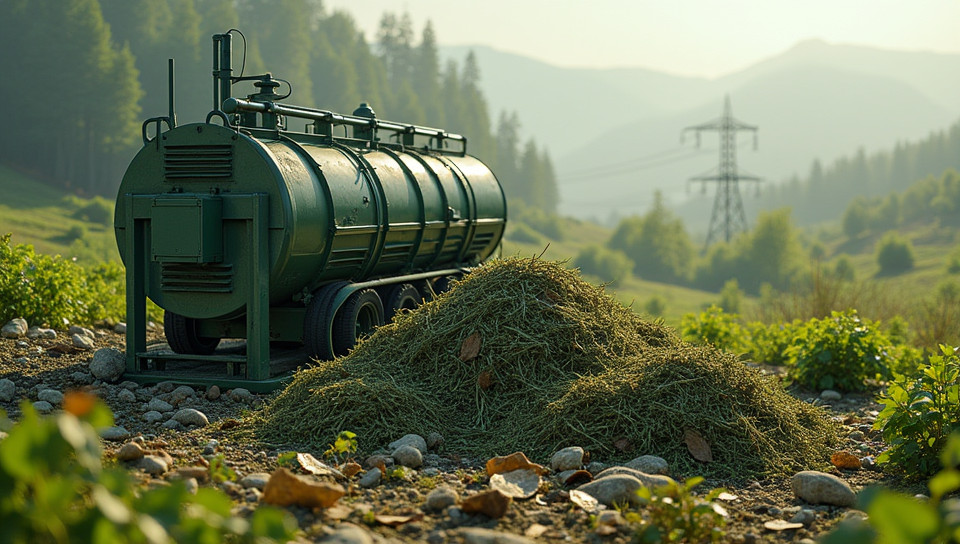Biomass systems create power from organic waste materials 74%

Harnessing Power from Waste: The Future of Biomass Systems
In a world where renewable energy sources are becoming increasingly important, biomass systems are playing a vital role in creating power from organic waste materials. This innovative approach is not only reducing our reliance on fossil fuels but also helping to mitigate the environmental impacts associated with traditional waste disposal methods.
What are Biomass Systems?
Biomass systems are designed to convert organic waste materials into electricity or heat through various processes such as combustion, gasification, or anaerobic digestion. These systems can utilize a wide range of feedstocks including agricultural waste, wood chips, and even municipal solid waste. The resulting energy is then fed back into the grid, providing power for homes, businesses, and industries.
Benefits of Biomass Systems
- Reduce greenhouse gas emissions by replacing fossil fuels
- Decrease dependence on non-renewable resources
- Create jobs and stimulate local economies through infrastructure development and maintenance
- Provide a sustainable solution for waste management
How Do Biomass Systems Work?
Biomass systems can be designed to operate in various configurations, including small-scale, medium-scale, or large-scale facilities. The basic process typically involves several key components:
- Feedstock collection and processing
- Fuel preparation (e.g., grinding, chopping)
- Energy conversion (combustion, gasification, or anaerobic digestion)
- Electricity generation
Real-World Applications of Biomass Systems
Biomass systems are being implemented around the world in various settings, from small communities to large industrial facilities. For example:
- In Sweden, biomass power plants generate over 50% of the country's electricity
- In California, USA, biogas production from agricultural waste is used to fuel vehicles and heat homes
Conclusion
Biomass systems offer a promising solution for creating power from organic waste materials while promoting sustainability and reducing environmental impacts. As the demand for renewable energy continues to grow, biomass systems will play an increasingly important role in shaping our energy future. By investing in this technology, we can create a more circular economy, reduce greenhouse gas emissions, and secure a sustainable energy supply for generations to come.
- Created by: Rei Saitō
- Created at: Aug. 18, 2024, 12:39 a.m.
- ID: 7692






